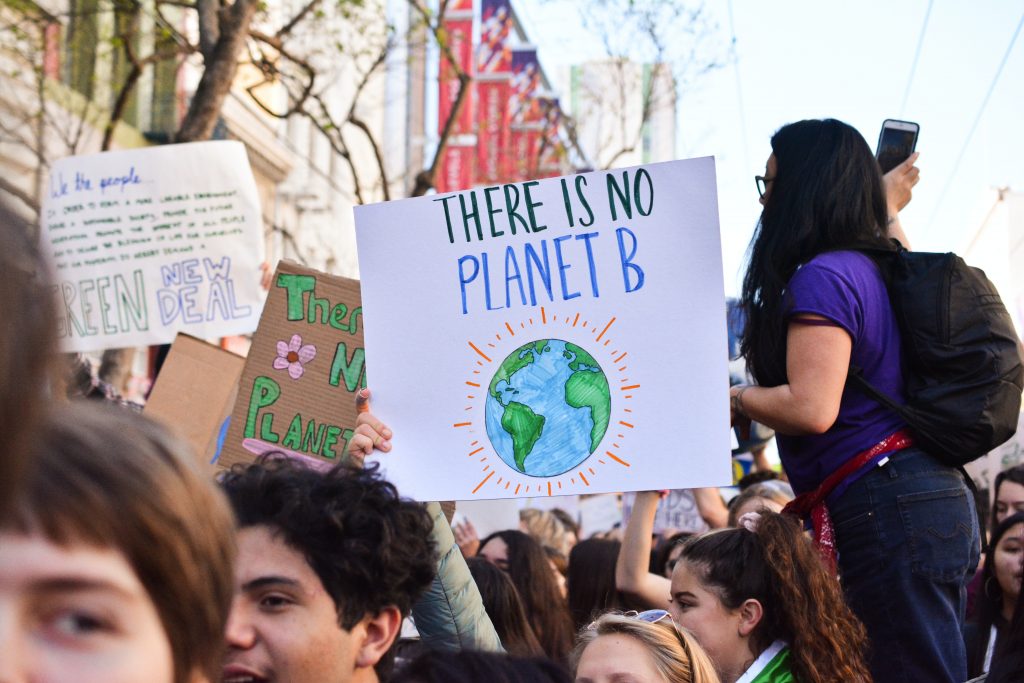The pending climate crisis encourages the narrative that the end of the world is near but is this true or is it just fear mongering?

Nothing Ahead, Pexels Dice Letters over a Map · Free Stock Photo (pexels.com)
Whether it is being shouted in the street or depicted in a TV Show the possibility of the end of the world due to the climate crisis, or another environmentally linked disaster, is seeming more likely. As the ice caps melt, extreme weather becomes more common and the airs grows more toxic we are faced with the question: is the climate crisis leading to the end of the world?
Adam Schlosser, the Deputy Director of the MIT Joint Program on the Science and Policy of Global Change and climate scientist who studies the future of climate change and its impact on humanity, reassured the community that the climate crisis should not lead to the end of the world; “If I had to rate odds, I would say the chances of climate change driving us to the point of human extinction are very low, if not zero” But research conducted by the UN, WHO, MIT and many more indicates that when the climate clock runs out it will cause devasting impacts on us and our planet, “No corner of the globe is immune from the devastating consequences of climate change. Rising temperatures are fuelling environmental degradation, natural disasters, weather extremes, food and water insecurity, economic disruption, conflict, and terrorism. Sea levels are rising, the Arctic is melting, coral reefs are dying, oceans are acidifying, and forests are burning. It is clear that business as usual is not good enough. As the infinite cost of climate change reaches irreversible highs, now is the time for bold collective action.” However, most research seems to siuggest that humanity would continue to exist and survive the climax of a climate crisis. But this survival comes with a cost- our quality of life which could be close to a dystopia!
There is much discourse about when and/or if the climate crisis will happen for example the Met Office implied that the climate clock should run out between 2050-2070 whereas others sources such as Climate Clock, indicate a much closer date- 2029. Others individuals completely reject the notion that the climate clock will ever run out, however it is important to note most of these sources that reject our climate clock will run out have limited scientific evidence and understanding on the matter therefore lacking validity. Despite a lack of evicdence a study conducted by King’s College London concluded that a quarter of the population either reject climate change or are unsure if it is real.
Unfortunately, there is lack of agreement on this issue and uncertainity around when we will hit the point of no return therefore many do the bare minimum to help the planet. However, despite cohesive evidence, the climate crisis is real, and that we should do what we can to prevent it despite when the climax will happen; if that be in 10 years or 1000 years, this our planet and it is out duty to protect and preserve for future generations.
Subsequently, this leads us to another issue faced by the climate crisis. Can we stop it? Is it worth it, are we too late, have we already gone past the point of no return? Many struggle with the narrative that is pointless, thus have little motivation. Some urge that we can still take action, such as the UN, who stress that “we are far from powerless in the face of this global threat.” and it will have an impact and is worth it. Despite this many people are hopeless, and believe we are already doomed, so they do not see a point in trying, despite many sources and research advocating that it is not too late if we take drastic immediate action. Sky News and YouGov found that almost 25% of Britons are unwilling to make the changes needed. Additionally, there is disagreement about how to help the planet and what is the most effective way to save the planet, for example does individual action matter or is it the people in power that need to make the change (this debate will be covered in more detail in a later issue). The convlusion seems to be that doing something is significanlt better then doing nothing at all.
In conclusion, the climate crisis is real, but it is unlikely that it is the end of the world, but to ensure we don’t find out, it is highly recommended that we do our bit to save our planet and give future generations a chance to live, not just survive.
If are interested in learning more about the climate crisis here are some other articles to start you off:
Research | Climate Change/research
nge – UCL – University College London
Climate Change Research – NASA

